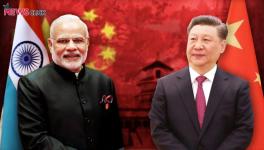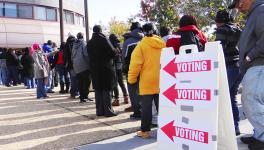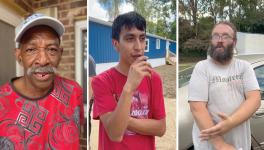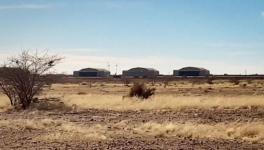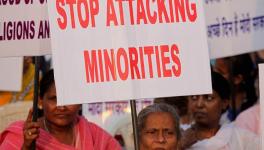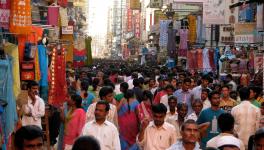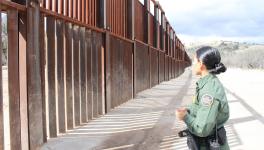Racialisation of Space and Time in the US
Newsclick speaks to Beverly G. Ward, Consultant, BGW Associates regarding the Trayvon Martin case and the larger conditions of the African Americans in the US. Beverly talks about the historical background of how space and place and time are racialised in America and feels that laws like Stand Your Ground Law encourage an open season on African Americans. She explains how media would make one believe that in the Obama era, this is no more the case; but Trayvon's case has proved this wrong.
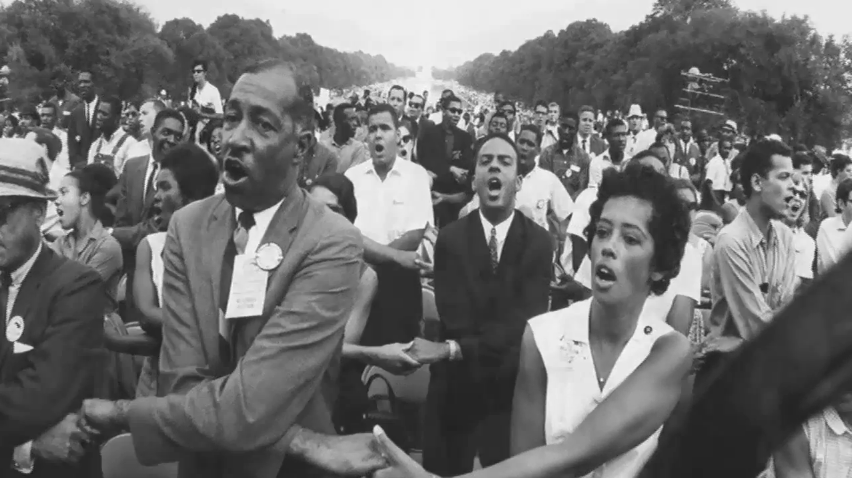
Transcript:
Prabir Purkayastha (PP): Hello and welcome to Newsclick. Today we have with us Beverly Ward who is a professional consultant working with disadvantaged groups in the United States. Beverly good to have you with us and hope you had a good time in India. Trayvon Martin's case has been a worldwide news. A 17 year old young man was shot down in this fashion and a jury finally found the assailant who had chased him, essentially forced a quarrel on him and finally shot him as not guilty. Do you think this is a failure of the judicial system or was it a failure of the law itself that had been enacted in Florida – Stand Your Ground law?
Beverly Ward(BW): I think its a huge failure. I think you are right on both counts. I hope that the people who think about this, will follow the case. There were a number of errors made and I won't go into all of them. I'll give you an example. After Trayvon was shot, his body lay in the morgue for two days unidentified. And his family had reported him missing. So, he's in the city's morgue and nobody put those pieces together. So, there were a number of errors that were made. I want to talk a little bit about Stand Your Ground and my feelings about this. When that law was passed, there were those of us on the Left and more progressive who said that that's an open season, particularly on African Americans because the policy, you know, walking like black, talking like black, looking like black, you can be stopped, frisked or suspected. And this plays into a larger historical view of how space and place are racialised in America; that you're not supposed to be at certain places at certain times, if you're black. In the post Obama era, we think those days, the media, the mainstream media would have you believe that those days are gone but Trayvon's case decision brings in that glaring into light. So, thank you for asking me that question.
PP: What does it mean to the African American population today in the United States to have a Black President and yet have these kinds of incidents happening; huge number of African American youth in prison and now increasingly even electoral laws being changed by the Supreme Court which effectively brings back the kind of discrimination, may not be in so glaring form, but back to what it was in the 60s which is what gave rise to the civil rights movement.
BW: If you follow the data and I crunch the numbers a lot, that the changes that a lot of us had hoped for in the 60s, in a number of instances that you've ticked off have never been realized and some of the laws and spaces that had opened up are being closed and are rolling back. Decisions around affirmative action and how that can be used to create space in the universities for African Americans or low income people – those are being closed off. Voting rights. I also ask your viewers and all those who follow you on web to pay attention, because we hope they'll do something around August 28, 2013 which will be the fiftieth anniversary of the March on Washington. There will be another March on Washington and I am hoping that the numbers will be even greater than they were fifty years ago because of this dichotomy, you know, you have a Black President in a White House but you are not safe to walk around a community.
PP: What are the next steps for the African American leadership with respect to Trayvon Martin's case? Is it, having the pressure for reopening the case, having federal government take initiative, take some steps on that or is it to look at the law itself or do both?
BW: All and both. It is not either, or but it's and, both. His family has vowed to spend the rest of their lives seeking justice and speaking out for others. In addition to pursuing civil rights case against, at least the shooter, Zimmerman. But there may be grounds for broader, you know, some action against the police department and so on. The other thing I've seen is that, I was some what heartened by the way people turned out the week following the decision. All across the country there were hundreds of people. I've heard the African American community say that they were unable to watch the trial but they were glued to the transcripts and the newspapers to see what happened and following it. The interest did not drop over a year. So I think the people are rallying around, for a number of reasons that you name because it is this – his death, I think people were saying, should not be in vain. We've got to do something because of all of these decisions.
PP: Both the gun lobby, particularly the gun laws, and of course in this case the Stand Your Ground law was really an extension of the gun lobby, if you will. Is there any change likely to take place in the US as a response to this, with regard to the gun laws, gun lobby, particularly the Stand Your Ground law?
BW: There is considerable pressure on the governor of Florida to do something around Stand Your Ground. There are, in addition, a number of cities have - where the Congress and some state legislatures have been unwilling to act. Number of cities have enacted gun laws and some of them are being sued or whatever, but there is this sentiment amongst some that there are just too many guns, too much access. There is a website, slate.com that since December 2012 has been counting the number of people who have been killed by guns since the Newtown massacre. I think that there is a groundswell for a number of different reasons that people who are coming together are saying: Look, we've got to make some sense of this.
PP: So, do you think there's a possibility also of, given the fact of all the instances you gave, the civil rights - what had been won in terms of affirmative action, closing of some of that; the kind of electoral laws the Supreme Court now has struck down a very central part of that – do you think there is a part of again building up to a new civil rights movement from the African American community?
BW: I think so. When you've got a third of African American males that are disenfranchised either because they are on parole, on probation or in prison in a number of states, you lose your voting rights. You know, what so many people fought so hard to get, you are not disenfranchised because of these policies – you know, how much can a community bear. That has a groundswell. I also point to the connection that Tavis Smiley and Cornel West have made not only around people of colour but poor people, with their poverty tour last year. And so there is this, again, the Occupy Movement has not gone away; its coverage has gone away but they are still occupying, they are still acting on a number of these issues.
PP: Hopefully, there will be a coming together of new forces and revitalization of the existing forces. Thank you very much Beverly.
BW: Thank you for having me again.
Get the latest reports & analysis with people's perspective on Protests, movements & deep analytical videos, discussions of the current affairs in your Telegram app. Subscribe to NewsClick's Telegram channel & get Real-Time updates on stories, as they get published on our website.









